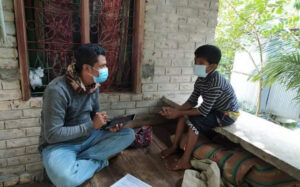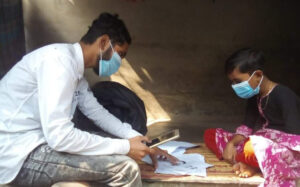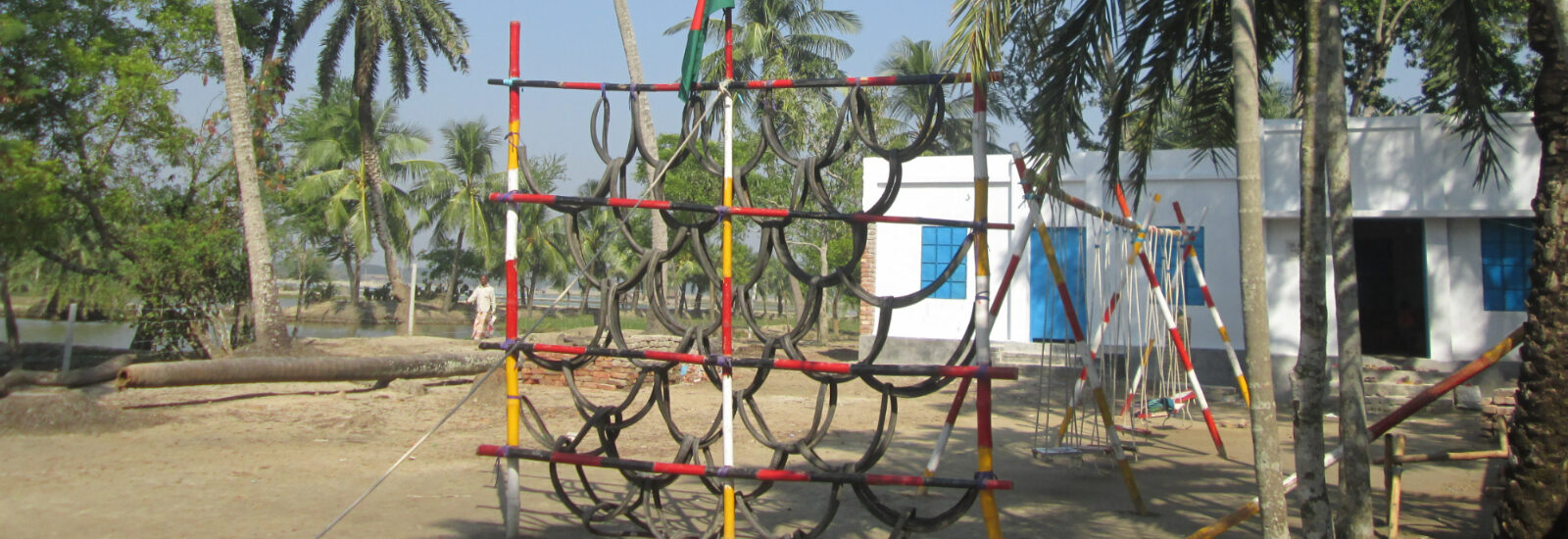CONNECTED speaks with Reading graduate, Hashibul Hassan, about his research that helped keep children and their families connected with their education during the COVID-19 pandemic.
The Study UK British Council Alumni Awards recognise UK university alumni, who are living outside of the UK and who have inspirational success stories, across four award categories: Science and Sustainability, Culture and Creativity, Social Action, and Business Innovation.
University of Reading alumni, Hashibul, has been shortlisted for the 2022-23 Social Action Award category for his remarkable research that is actively repairing the gaps in children’s education across Bangladesh.
The Largest Crisis in Education
COVID-19 has been responsible for gaps in children’s education all over the world. However, in emerging countries the educational impacts of the pandemic are an added challenge on top of other monumental events such as conflict, political turmoil, and natural catastrophes.
UNESCO reported  COVID-19 to be the largest crisis to threaten education for countries already devastated by war and epidemics. According to UNESCO, 1.5 billion students worldwide were affected by partial or full school closures. In March 2021, nearly half of those students worldwide were still found to be impacted by school closures. In addition, around 65% of low-income countries have had to cut their education budgets due to the impact of the pandemic.
COVID-19 to be the largest crisis to threaten education for countries already devastated by war and epidemics. According to UNESCO, 1.5 billion students worldwide were affected by partial or full school closures. In March 2021, nearly half of those students worldwide were still found to be impacted by school closures. In addition, around 65% of low-income countries have had to cut their education budgets due to the impact of the pandemic.
In Bangladesh, schools were closed on 17 March 2020, and then partially reopened on 12 September 2021. They closed again on 21 January 2022, and the fully reopened in mid-March 2022. It was this impact on children’s education that inspired Hashibul to take action and focus his research on helping to bridge these educational gaps.
Taking Action
As a result of the prolonged school closures, many countries adopted online learning to help keep children in education. Given poor digital connectivity in rural areas, the Bangladesh government used public broadcasting via television and radio for lessons targeted towards school students.
However, with half of rural households in Bangladesh not owning a television and only 3% listening to the radio, these channels did not ensure universal access to distance learning. The lack of technology in rural areas meant that around 60% of 37 million primary school children were missing out on all forms of education during the pandemic. Hashibul said:
“I wanted to do something directly for the vulnerable children of rural Bangladesh as part of my PhD research and also gather some scientific evidence on low-tech distance learning interventions.
“I, along with my PhD supervisors, applied for several grants and we were successful in securing a couple. With the help of these grants, I have developed two educational interventions delivered via basic mobile phones as more than 95% of rural households in Bangladesh possess at least one mobile phone in their household.”
The two programmes created by Hashibul have provided technological means to ensure those in rural Bangladesh are still able to access their education.
 He explains: “The first programme was tutoring via phone delivered by volunteer students from university in Bangladesh. The second programme was delivering audio lessons via the Interactive Voice Response [IVR] platform of the mobile phone. Both the programmes had very successful results and have directly changed the lives of 2601 children from the Khulna and Satkhira districts of Bangladesh during the pandemic.
He explains: “The first programme was tutoring via phone delivered by volunteer students from university in Bangladesh. The second programme was delivering audio lessons via the Interactive Voice Response [IVR] platform of the mobile phone. Both the programmes had very successful results and have directly changed the lives of 2601 children from the Khulna and Satkhira districts of Bangladesh during the pandemic.
“More importantly, these initiatives are helping myself and others to develop further programmes and interventions, such as information campaigns for mothers and farming information for farmers, that could change the lives of many more people who do not have access to the internet.”
A Passion for Research
After completing his MSc degree in Development Finance at the University of Reading, Hashibul returned to Bangladesh and started working as Assistant Professor at Jagannath University, Dhaka. He said:
“The culture and knowledge I received from the University of Reading, as well as from my thesis supervisor, helped me a lot in providing better student service and teaching in my role as Assistant Professor in the Department of Finance.”
With the hope of pursuing a PhD, Hashibul started looking for a study grant and in 2018 was granted a fully-funded scholarship at Monash University, Australia to study for a PhD in Economics. He accredits much of his time at the University of Reading to his success of securing a grant and studying at Monash University.
He said: “I must admit this was only possible because of my MSc degree at Reading. This degree not only enabled me to qualify for the Monash PhD programme but also inspired my passion for a research degree in the first place.
“The research culture of the University of Reading helped me to think critically about peoples’ lives and to better formulate interventions that fit a community and support individuals.”
Hashibul is now Associate Professor at the Department of Finance, Jagannath University, Bangladesh and is currently building on this research which improved access to education in rural areas. He is now hoping to help women living in rural parts of Bangladesh to be able to access better health information through the use of mobile phones.
He explains: “These initiatives are helping myself and others to develop further programmes and interventions, such as information campaigns for mothers and farming information for farmers, that could change the lives of many more people who do not have access to the internet.”
Find out more information about studying Development Finance at the University of Reading.
The University of Reading is proud to share that Hashibul is one of three alumni to be shortlisted for the Study UK British Council Alumni Awards 2022-23. Read our previous articles on shortlisted candidates Muhammad Imran Khan and Peter Ogudoro.







